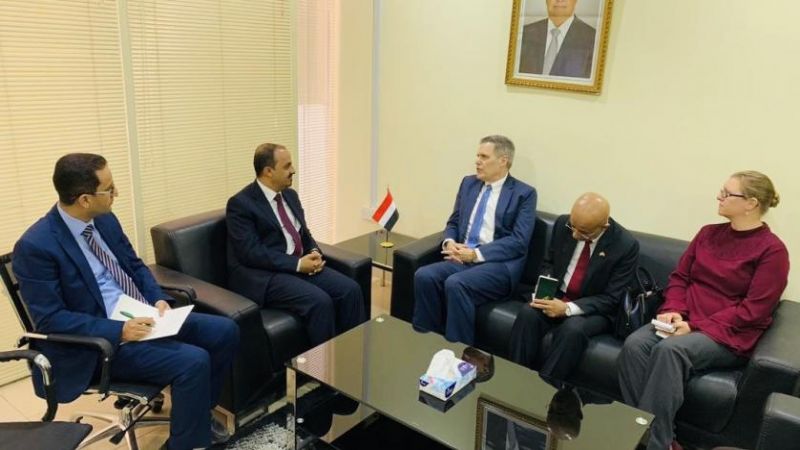
Local Editor
The resigned regime of Yemen’s former president Abd Rabbu Mnasour Hadi urged Thursday the United States to blacklist the country’s popular Houthi Ansarullah movement as terrorists.
During a meeting in Riyadh with US Ambassador to Yemen Matthew Tueller, Information Minister in the Hadi regime Moammar al-Eryani, reiterated his call to classify the “Houthi (Ansarullah) militias and deal with them as a terrorist organization.”
The recent request to the United Nations and the United States by the Hadi regime is not the first of its kind. The Washington Post in November reported serious efforts by the Trump administration to look into the matter. However, these demands have so far not materialized.
According to experts, blacklisting the Houthi movement officially will have political, humanitarian and legal repercussions and will affect the situation on the battlefield.
Legally, providing assistance to Ansarullah by US citizens or any group will be forbidden. Thus, their money will be frozen and they will be banned from travelling. The US will have to intervene directly in the Yemen war as part of its war on terror.
Washington will also have to refrain from dealing with the Ansarullah movement as an essential component in the country. Over the past few years, the group has shown real influence on the ground.
Such a decision will impact the already dire humanitarian situation in the war-torn country. The United Nations or humanitarian institutions will no longer be able to deliver aid to the areas controled by the Houthis, especially that the UN "refuses to engage with terrorist groups."
Politically, UN-sponsored efforts will come to an end. The blacklisting would affect the negotiations and meetings between UN delegates and Houthi officials. This will also halt other political consultations. For its part, the international community would not recognize the movement as a political entity. Hence, the group would be considered a dangerous entity for international peace and security.
On the ground, the Ansarullah would only intensify retaliatory attacks, prolonging the almost five-year-long conflict.
Source: Yemenwatch.net